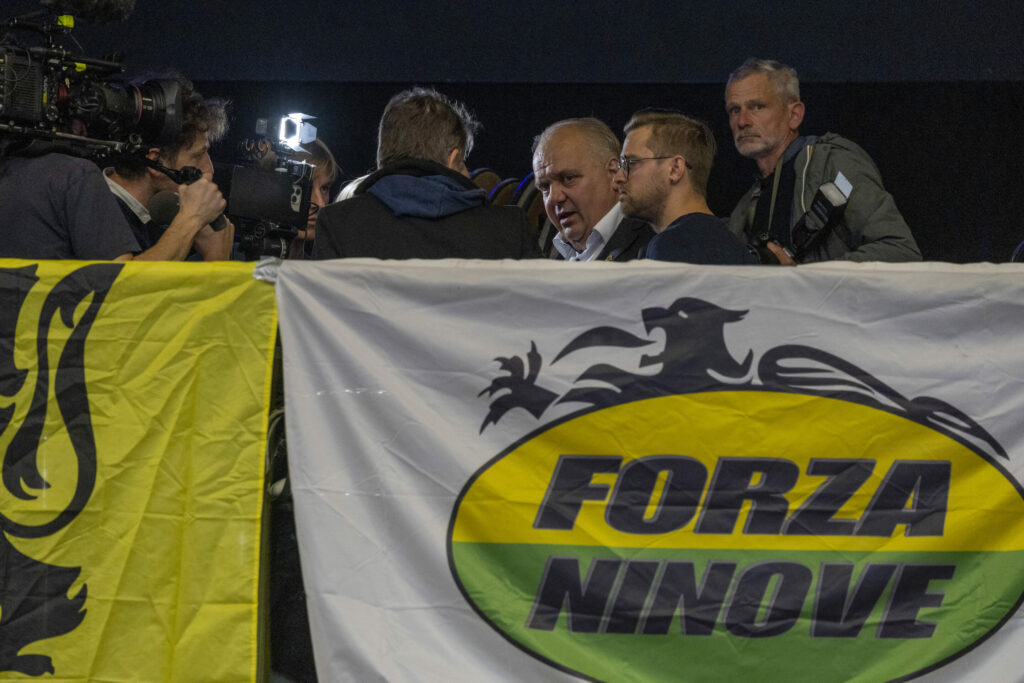The investigation into election fraud in the municipality of Ninove (East Flanders) focuses specifically on possible forged medical certificates. All proxy voting forms have been seized by the Public Prosecutor's Office to investigate whether there was a problem with the proxies used.
Even before the votes had been fully counted on Sunday, the East Flanders Public Prosecutor's Office announced that it had opened an investigation into election fraud at the polling station in Ninove – where far-right list Forza Ninove gained an absolute majority.
"The investigation must be done thoroughly and will not be completed in one day," Public Prosecutor's Office spokesperson Annelies Verstraete told Belga News Agency on Monday.
Those who are too sick to vote on election day can request a doctor's certificate to give a proxy so someone else can cast their vote for them. The investigation is said to be looking into whether some of these certificates were forged, as the same certificate has allegedly been used several times, VRT reports.
Not going door-to-door
It is currently not yet clear whether any forgery effectively happened, who would be responsible for it and to the advantage of which party this would have been.
On Sunday, the list leader of the local socialist green Vooruit-GROEN joint list, Stijn Vermassen, reportedly said that stories were circulating about Forza Ninove recruiting proxy votes among the elderly population – something which list leader Guy D'haeseleer strongly denied.
"The proxies we received are from people who contacted us spontaneously, who did not want their vote to be lost and asked us to collect their proxies," D'haeseleer said. "That happens with all parties. But we did not go door to door to collect proxies. I do know of certain parties that did that in nursing homes. I will not elaborate on that. I will see how the investigation goes."

Vlaams Belang's Guy D'haeseleer pictured during a meeting of 'Forza Ninove'. Credit: Belga/Nicolas Maeterlinck
In several other municipalities, irregularities with proxy votes were also reported: the West Flanders Public Prosecutor's Office has also opened an investigation into a case in Veurne, where the opposition accuses outgoing mayor Peter Roose (Veurne Plus) of canvassing proxies.
In the municipality of Turnhout (Antwerp), issues arose about the election leaflet by Paul van Miert (on a joint N-VA/CD&V list), who enclosed a proxy form with it. Opposition party Vlaams Belang filed a complaint and an investigation is underway.
While recruiting or soliciting proxies was a common practice for a long time (Vlaams Belang's Filip Dewinter even went to Benidorm in Spain to convince the Flemish people there to send a proxy form to Belgium), the practice is punishable in these local elections for the first time.
Anyone who is found guilty of it risks a prison sentence (from eight days to one month) and/or a fine. However, the judge cannot impose measures such as a recount of the votes or declaring the elections void.
Asking or soliciting votes?
The electoral decree states that someone violates the law when they "systematically address people or otherwise personally approach people in order to persuade them to sign and hand over the form for the proxies."
This formulation, however, leaves some room for interpretation. "What is the difference between asking for proxies or actively soliciting them? Proving that it is the latter is very difficult," Herman Matthijs, the chair of the Council for Electoral Disputes for years, told VRT.
Unlike the Public Prosecutor's Office, the Council for Electoral Disputes can decide to declare the vote void. It can also request a recount or (temporarily) suspend municipal councillors.
Belga News Agency reports that the police and the judiciary want to move forward quickly with the investigation because clarity must be provided before the mayors take the oath in December. If the Flemish Government starts the appointment process, the Public Prosecutor must confirm the appointed mayor.
The investigation has been handed over to the federal judicial police of East Flanders, and not the local police of Ninove. This should guarantee the independence of the investigation, because the mayor is also the head of the administrative police.

